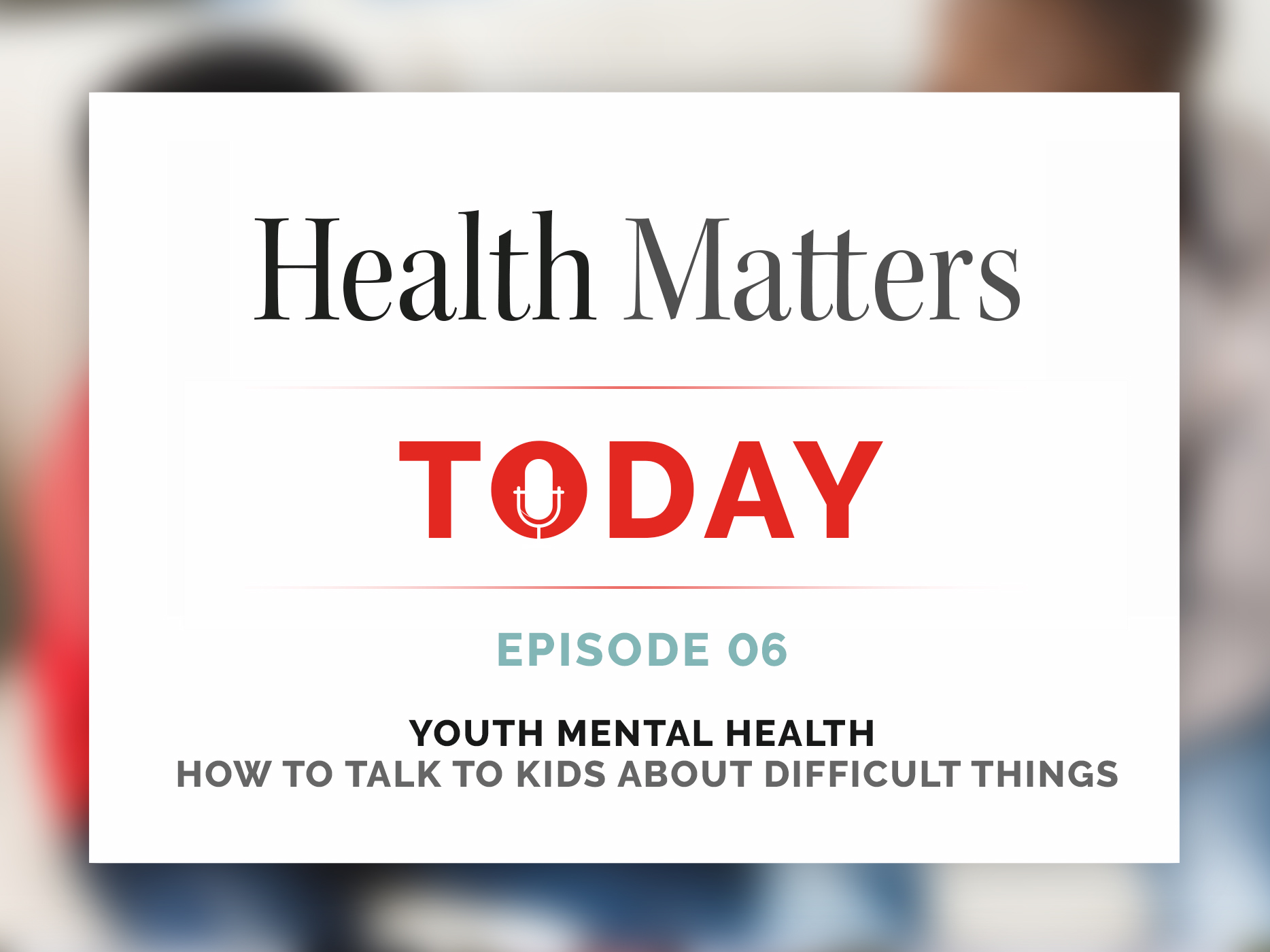Podcast: How to Talk to Kids About Difficult Things
Two youth mental health experts share tips on how to have open conversations with children on tough topics.


In our podcast Health Matters Today, experts from NewYork-Presbyterian’s Youth Anxiety Center discuss ways that parents can talk to kids about difficult topics.
Listen to Health Matters Today

Dr. Shannon Bennett, site clinical director of the NewYork-Presbyterian Youth Anxiety Center, and Dr. Warren Ng, medical director of outpatient behavioral health at NewYork-Presbyterian/Columbia University Irving Medical Center and director of clinical services for the Division of Child and Adolescent Psychiatry at NewYork-Presbyterian Morgan Stanley Children’s Hospital, share ways that parents can check in with their children and have open conversations.
“It’s helpful to just keep a dialogue open and share information if we have it,” says Dr. Bennett, who is also an assistant professor of Psychology in Clinical Psychiatry at Weill Cornell Medicine. “And also to just ask kids questions like, ‘Is this something that you’ve heard about? Is anyone talking about this in school’ As with most hard topics, we don’t need to avoid them for the sake of our kids. Especially if kids are asking questions about it, they’re ready to have honest answers.”
“Children’s mental health in this country is a silent pandemic,” says Dr. Ng, who is also a professor of Psychiatry at Columbia University Vagelos College of Physicians and Surgeons. “If you consider the last two years of the COVID-19 pandemic and the challenges related to the trauma of school shootings, global warming, international wars, racial injustice — all of these things are on top of the existing realities that a lot of kids were already suffering from. Things have only become even harder for them.”
Dr. Ng advises: “By being open to listening, we can best meet youth where they are at. Make sure that you set aside some time, so you’re not rushing. Let them know that you care about them and that you want to check in with them because a lot is going on in our world.”
Tip Sheet
Be Open
For younger kids: Don’t dismiss their questions and be truthful about what we know.
For older kids: Be honest about what we don’t know and look for answers together.
Validate Feelings
For younger kids: Help them label their emotions and talk about what they mean.
For older kids: Normalize the hard feelings — and check in with them often.
Be Mindful of Media
For younger kids: Limit what you’re watching because they are exposed to it too.
For older kids: Make sure they are consuming trusted news sources and monitor the time they spend on their devices.
Take Positive Action
For younger kids: “Look for the helpers,” as Mr. Fred Rogers, of Mister Rogers’ Neighborhood, would say, to help highlight the good during bad situations.
For older kids: Help them find ways to be helpers and give back to the community.
Listen to the rest of the Health Matters Today podcast series on youth mental health:

